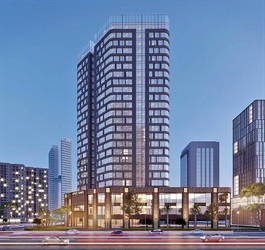HCMC landlords struggle to repay bank debts as rents dry up
HCMC landlords struggle to repay bank debts as rents dry up
Landlords are struggling to repay bank loans after the Covid-19 pandemic has caused demand for leasing properties to plummet.
Real estate buildings seen in Ho Chi Minh City. Photo by VnExpress/Quynh Tran.
|
In the last six months all of Tung’s savings have gone into paying bank loans he had obtained for his VND18 billion ($782,000) shophouse in HCMC’s Binh Thanh District.
He made the purchase in 2019 with a 30 percent loan, a ratio considered safe then.
Tung had hoped to pay by leasing the house to businesses, but the pandemic put paid to those plans.
Business tenants started to leave en masse as lockdowns and social distancing meant no revenues. Tung brought down the rent by 15 percent, then 30 percent and even 50 percent but still could not find new tenants.
Since the end of last year his shophouse has been mostly vacant, and he has even had to borrow from friends and family to pay the banks.
"Earlier this month I borrowed money with high interest rates for the first time to repay banks."
Quang of District 2 faces a similar plight. The rent for his premium three-bedroom apartment plummeted by 40 percent to $850 by the end of the first quarter.
His last tenant, a foreigner, moved out after their income fell, and Quang now has zero income from it but still has to pay the monthly bank installment.
The bank has repeatedly warned him it could foreclose on his mortgage if he fails to make regular payment.
Industry insiders said the HCMC real estate rent market has seen prices plunging, especially with mobility restrictions imposed this year due to the latest wave of Covid.
Nguyen Hoang Hai, chairman of property developer VNO Group, said those who borrow from banks to invest in real estate have been "living in a nightmare."
He estimated that 70-80 percent of theseowners have bank debts, but most get little or no rental income.
People who borrowed 30-50 percent of their property value are struggling, while those who borrowed 70-80 percent have mostly lost them, he claimed.
He forecast the market would not recover until next year.
"Banks need to lower loan interest rates for these investors for the next three to six months or roll over their debts."





























